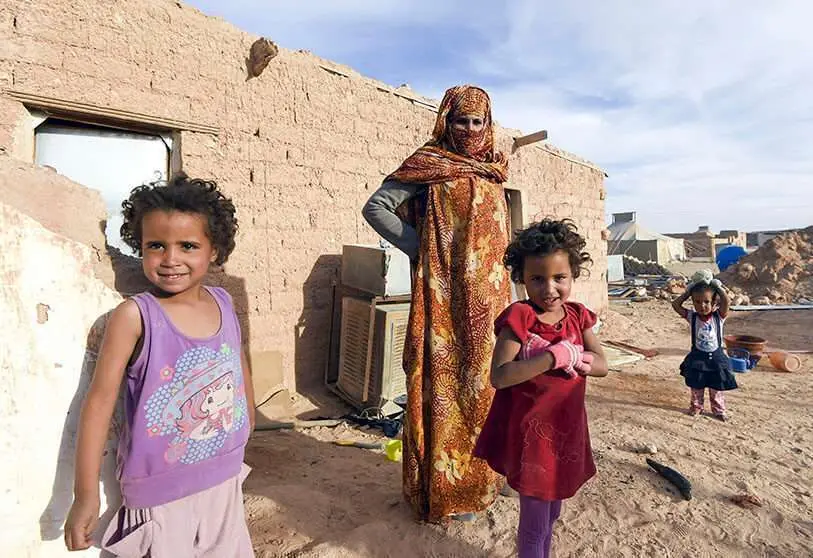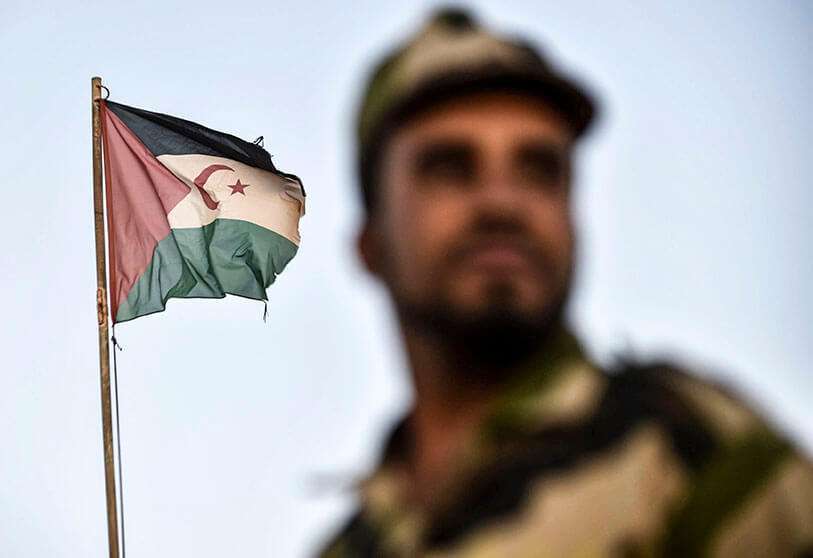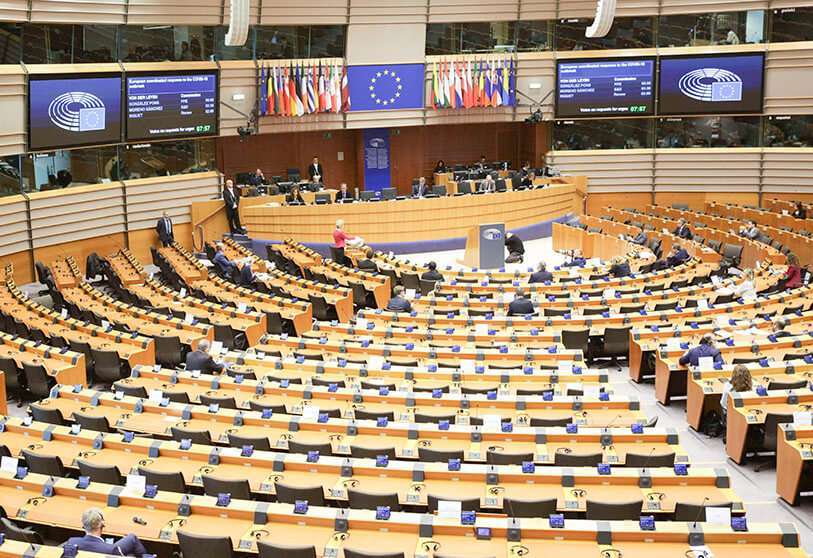Persiste la polémica por el desvío de ayuda humanitaria europea por parte del Polisario y Argelia

The exploitation for spurious interests of European Union (EU) humanitarian aid to the Saharawi refugees in the Tindouf camps in Algeria continues in the light of the allegations that continue to emerge on the subject. Despite the promises of the European Commission to put an end to this situation, new evidence has emerged trying to prove the illegitimate management by the Polisario Front (PF) and the Algerian authorities, something which is even more bloody at this difficult time with the health crisis of COVID-19.
On this subject, the website specialised in community information, EUtoday, reports on a series of investigations it has carried out on the ground and on testimonies understood to be irrefutable, something which has been echoed by the official Moroccan news agency MAP.
Quoting Mohamed Chérif Laaroussi Ahmed Salem, a former member of the Polisario, the media reports that groups of people held in Tindouf are used to ask for international humanitarian aid, which is then sold on the black market. Ahmed Salem himself claims to have witnessed the trade on the Mauritanian market with community food aid intended for refugees. This is a denounceable action from which profits are made that go into the personal coffers of Polisario leaders and Algerians and which serve to cover the cost of military equipment for the PF from Algeria.

The same source indicates that the North African nation state participates in this reprehensible procedure by making a profit from the tax it adds to this aid, as confirmed by the European Parliament's Committee on Budgetary Control in July 2015.
Within this framework, from which extra income is obtained by illegally diverting European humanitarian aid, it should also be noted that, as MAP publishes in the wake of the EUtoday investigation, there are complaints about figures being made up about the number of refugees in the Tindouf camps. A number that Algeria and the Polisario raises well above what is estimated by other more reliable sources, in order to supposedly obtain a greater number of international aid than it can handle at its own will.
"The deliberate confusion over the number of refugees in the Tindouf camps is the cornerstone of the diversion of food aid and daily consumer goods," EUtoday has pointed out, explaining that in the absence of a census that should be conducted by Algeria, the Polisario says there are between 155,000 and 170,000 people in the Tindouf camps; although independent organizations and neutral observers estimate the real figure at between 70,000 and 90,000.
For the European site, the surplus supply resulting from these false figures represents a large profit margin for Polisario and Algeria.
For the European site, the surplus supply resulting from these false figures represents a large profit margin for the Polisario and Algeria. The diversion of this aid further harms the people who live in poor conditions in the camps in Tindouf where the most basic services are scarce. The state of health of the refugees is worrying, as EUtoday points out, with reference to the malnutrition of children and the exploitation of men and women for military and forced labour and other abuses.
EUtoday also includes the testimony of the Swedish Bjorn Hultin, an expert linked to the European Parliament, who says that the diversion of humanitarian aid is demonstrated by evidence and photos and is a common practice.
Recalling the outrage raised in the European Parliament following the first revelations of the European Anti-Fraud Office (EAFO) report in 2015, Hultin said that Polisario's leaders were systematically engaged in the misappropriation of humanitarian aid and were amassing large fortunes and luxury real estate, particularly in Spain, noting that "it is tragic to get rich at the expense of the suffering of the kidnapped populations".
Nicolas Bay MEP (Member of European Parliament) also called for EU action against the reported continued misappropriation of European humanitarian aid by the PF and Algeria.
"Why does Brussels refuse to investigate these acts despite the evidence that is accumulating? Why does the EU continue to send almost 10 million euros of material every year to a camp that does not even know the real number of people it houses? This money is European countries' taxpayers' money, it is time to call Brussels and Algeria to account", regretted the French MEP in a statement issued last Wednesday.
The MEP refers to the same report of January 2015 issued by EAFO which "reveals a system of massive diversion of humanitarian aid orchestrated by the Polisario Front, with the complicity of Algeria".

The damning report, added the French MEP, stated that the real number of inhabitants of the Tindouf camps, controlled by the Polisario in western Algeria, is totally unknown, since the Algerian authorities forbid the EU to send a mission to the area to assess the situation.
The MEP recalls that a hearing in the European Parliament in July 2015 even revealed that "Algeria, which receives the aid in the port of Oran, imposes a 5% tax on the aid sent". He added that this traffic is still active to this day and that "a large part of humanitarian aid is sold each year in Mauritania to finance the Polisario and its operations against the territorial sovereignty of Morocco".
Therefore, the denunciations continue about the attitude of the PF and Algeria towards the refugees of Tindouf and the Saharawi question, in the face of which a very large part of the international community supports the solution proposed by Morocco of an autonomy for the region of Western Sahara under Moroccan sovereignty, in the face of the belligerent activity of the Polisario, which even calls to arms and demands a referendum which is not supported on an international level.








